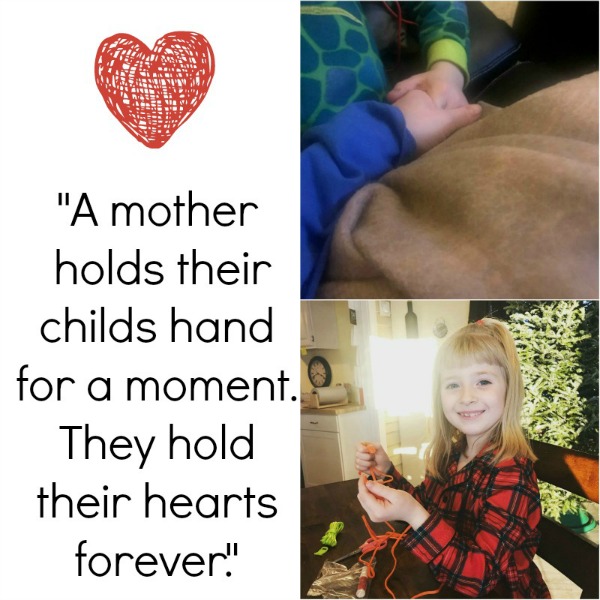This is such a sensitive subject for me. Admitting that I didn’t have an emotional attachment to my child for quite some time was the worst feeling I could have ever felt in my life. You can check out my story under My Journey to Motherhood. I won’t repeat it again but as I was searching through the Parenting NH magazine to look for a good article to post while I’m on vacation I came across this one. I had no idea as I was reading it that Alison Palmer, the woman who helped guide me to the right people, the woman who let me vent, and the woman who facilitates a fantastic support group that I can still go to anytime I want. I’ve met some amazing woman through this experience so please know if you ever experience any of these symptoms their are people out their that can help. I recently went to a seminar that Alison spoke at and I realized that the problem with PPD is that healthcare workers, providers, therapists, etc etc don’t know the warning signs, mothers don’t know the warning signs, it’s all about awareness, I honestly think some people are embarressed to talk about it and that may cause more problems in the end. Seek help, it’s their for everyone and anyone.
By Karen Plumley
Cynthia Chamberlain of Pelham had a good first pregnancy and birth. She had no reason to suspect that about two weeks after her second child was born, she would experience a sadness that she couldn’t shake.
“I went back to work when my second daughter was three months old, but I couldn’t stop crying. I was crying all day long. I thought to myself, ‘This can’t be normal…what’s wrong with me?’”
Luckily, she sought the help of a mental health professional. Her employer offered a life balance program that included three sessions with a psychiatrist. During these visits, they discovered her birth control medication needed adjusting.
“After two pregnancies and significant hormone changes, the pill I was on before just wasn’t working for me anymore,” Cindy said. It took about six months of trial and error before finding the right combination of hormones that would alleviate her mild postpartum mood disorder.
According to Alison Palmer, RN, MS, WHNP-BC of Elliot Hospital in Manchester, as many as 80 percent of women experience “the baby blues” in the first weeks after delivery.
“There is a shift in estrogen and progesterone after birth, and this combined with sleep deprivation and the life adjustment necessary for new mothers — or families adding a sibling — can cause a transient depression,” Palmer said. According to Palmer, feelings of being tired or overwhelmed are normal and should subside in about two or three weeks.
Postpartum depression
When the baby blues do not fade, but continue or worsen, a mom should seek the help of her OB provider or primary care doctor. Palmer said postpartum depression is the number one complication of childbirth, but when identified, it is a very treatable mood disorder.
Postpartum depression can strike during pregnancy as well, and at anytime within a year after delivery. It is believed that 10 percent to 25 percent of women will be affected by moderate or severe postpartum depression.
Women with a history of mood disorders and major depression, or with a family history of psychiatric problems, and women with thyroid dysfunction are more susceptible to postpartum depression. Major lifestyle changes can also have an impact on mood.
Alison Palmer, who is the Support Coordinator for the New Hampshire Chapter of Postpartum Support International, lists some of the life alterations that could precipitate a postpartum mental illness, including going back to work, weaning and restarting birth control. Additionally, stressors such as relationship trouble, family illness or financial hardship can trigger a more severe postpartum depression.
Palmer said, “If something feels not quite right, then you are probably right.”
Symptoms of postpartum depression include:
- Sadness that won’t go away (check)
- Exhaustion, but unable to sleep
- Changes in eating or sleeping habits
- Lack of concentration (check)
- Loss of interest or pleasure in normal activities (check)
- Hopelessness or frustration (check, check and check!)
- Restlessness, irritability, or anger (and check)
- Feeling extremely high and full of energy (I wish)
- Feelings of anxiety, and physical symptoms such as aches, chest pain, shortness of breath, numbness, tingling, or “lump” in the throat (all of the above!!)
- Feelings of guilt and shame, thinking you are not a good mother (this was by far the worst of them all 🙁 )
- Inability to bond with the baby (luckily this got better quickly for me)
- Fear of being alone with the baby (thank god I didn’t have this one)
- Having repeated scary thoughts about the baby (luckily mine never got this bad)
- Having thoughts about harming yourself or the baby (lucky again!)
Postpartum OCD and postpartum psychosis
According to the Mayo Clinic, the signs of symptoms of postpartum psychosis — a rare condition that typically develops within the first two weeks after delivery — are even more severe. Signs and symptoms of postpartum psychosis may include:
- Confusion and disorientation
- Hallucinations and delusions
- Paranoia
- Attempts to harm yourself or the baby
Postpartum psychosis requires immediate treatment, often in the hospital.
A condition described by Cecilia Stuopis, MD, of Dartmouth-Hitchcock Medical Center’s Obstetrics and Gynecology department, as being “in between” postpartum depression and postpartum psychosis is postpartum OCD.
Obsessive thinking that seeps into a woman’s thoughts during the postpartum period can be confusing, scary and overpowering. Dr. Stuopis said approximately 3 percent to 5 percent of mothers will experience this perinatal mood disorder.
“OCD presents itself as uncontrollable obsessive thinking that something bad will happen to the mother or her baby,” Dr. Stuopis said. Common thoughts include exposure to germs or accidental drowning in the bathtub. Postpartum OCD can be terrifying and cause sleeplessness, isolation and compulsive behaviors such as obsessive hand washing or odd self-soothing rituals that involve counting or touching objects a certain number of times.
Treatment
There are many ways postpartum depression can be treated. It is important to seek medical treatment when a mother suspects her depression is affecting her quality of life. If left untreated, PPD may progress and eventually put a mother’s life in jeopardy. It may also affect the mood and normal development of her baby.
According to Dr. Stuopis, there seems to be a greater acceptance associated with anti-depressant medication compared with therapy. “Many women prefer to start off with medication. Most of these moms are sleep deprived and simply cannot find the time for frequent visits to a mental health professional.”
Palmer points out many antidepressants are now relatively safe, even during breastfeeding. Palmer said effective treatment must also include a self-care plan with “exercise, good nutrition, rest and time for yourself.”
Social groups can provide additional support and help a new mom stay connected. “There are three PPD support groups in the area that are free of charge and moms can bring their babies along,” Palmer said. “There are also many online support forums for moms that cannot leave the house regularly.” Postpartum Support International’s website, www.postpartum.net, is an extensive online resource for new mothers and their families.
Some women do find that talk therapy with the right mental health professional is a good choice for them, and with a decent support system, mothers can find the time to incorporate this into their busy schedules.
Karen Plumley is a freelance writer and mother of two from Pelham. She can be reached ataisie_12@yahoo.com.
Last updated by Morgen Thiboult Jun 27, 2011.










Back when my daughter was born, no one had ever heard of PPD – but I suspect I had it. I didn’t bond with her either. However, now 31 years later we are so close! I know that there are those who say if you don’t bond early, you never will – but “they” are wrong. Sometimes love takes time, but it will come.
I’m so thankful the awareness is out their more….I still have my struggle days but my daughter has become the light of my life…..and I know how important that is because I have the best relationship with my mom 🙂 Glad you found your bond!!
I found this fascinating. I was unable to have children, so missed all the challenges and joys that come with it. I have step girls that I adore but I do know it isn’t the same. I am so happy you were able to u drat and the issue and sought out help. 🙂
Thanks Susan, it really is all about awareness. I’m sure your step daughters adore you 🙂 Thanks for following!!
This is such an important article Tammi! I suffered PPD with Anna too, and it was the worst thing I have ever gone through, so I can relate. I am so nervous and scared that it is going to happen this time around again, but my dr and I have a plan for re-starting Zoloft in the hospital after baby is born, so I hope it helps. Thank you for sharing this important article!
Sounds like you have a great plan in action Maggie, I know around where I live the awareness of PPD is just not good enough. Being a first time mother I had no clue what to expect and I wish I got help sooner!! Keep me posted on baby #2 Momma!!! 🙂